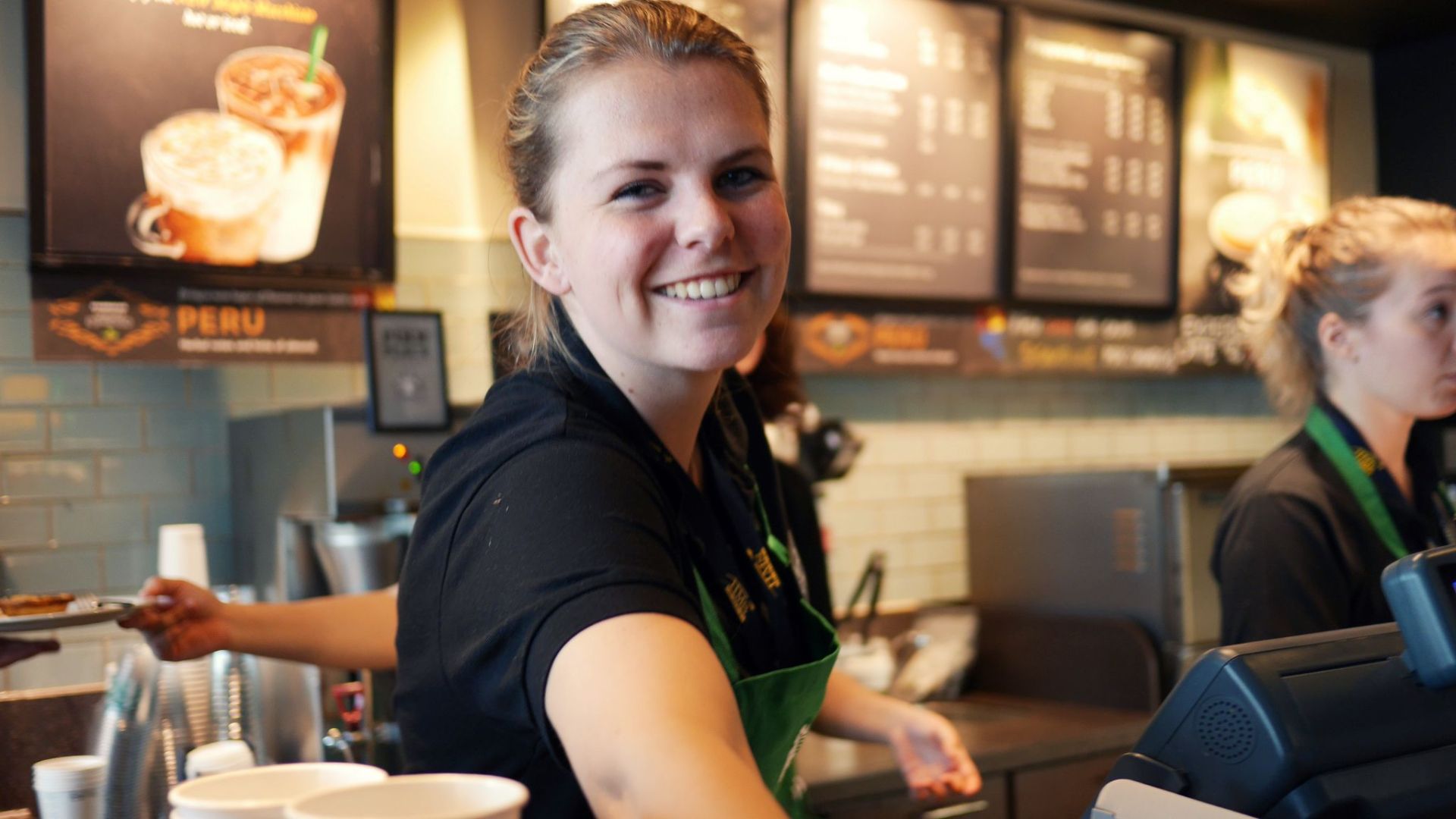People start asking the question, “What do you want to do when you grow up?” when kids are in preschool. I’ve had many responses along the way—a stock broker, a doctor, a journalist, to name a few. When I graduated high school ten years ago, I assumed that by now I would finally be living the answer to that question. Instead, I’ve given up on finding one.
That question—and the belief that a singular career will become our identity as adults—holds less meaning for today’s job hoppers and career jugglers. Earlier generations chose their profession and, for the most part, stuck with it. They envisioned careers as linear paths up a company hierarchy or at least within the same field. Of course, there were workers who switched industries and took zigzag job routes, but they were exceptions. Now, they’re becoming the norm.
A typical millennial career path may involve dabbling in different fields, getting multiple, unrelated graduate degrees, and working at Starbucks in the meantime. There are economic reasons for our seeming capriciousness. Many of us entered the job market in the depths of the Great Recession, when the rate of unemployment for twentysomethings with a bachelor’s degree or higher jumped from 7.7 percent 2007 to 13.3 percent just five years later, according to research from the Barna Group. Many ended up underemployed and working at jobs that didn’t require a degree.
Beyond these economic forces, or perhaps because of them, younger workers hold different expectations. A recent poll showed that while older Americans were concerned with making money or learning new skills on their first job, younger Americans are more concerned with making a difference in society and doing something they enjoy. We want our work to be meaningful, even if that means changing directions and taking risks our parents would consider irresponsible.
Nearly half of millennials, according to the Barna Group, feel judged by older adults for their life choices. As our career paths wander, our parents and elders may badger us about finances and stability. When will we start saving, investing in our retirement, or settling down to buy a house and start a family? They have some legitimate concerns. More millennials are living at home than ever before, and some of us are delaying home-buying or marriage due to student debts.
These traditional markers of success don’t mean as much to our generation, though. We care more about having financial independence right now than planning for a vague retirement 40 years down the road, and, because we are more mobile, we view home buying as more of an investment opportunity than a way of putting down roots. But even as we shrug off others’ expectations, we can still be haunted by the old narrative. As we watch peers on a more traditional path taking plum jobs or scoring big promotions, we wonder, “Shouldn’t I be further along in my career by now?”
For twentysomething and thirtysomething Christians, our understanding of career is joined to a sense of calling. In my years at a Christian liberal arts college, I often heard peers talk about being called in very specific ways: to do business as mission in China or specialize in international law and fight sex trafficking, for example. Though noble and worthy pursuits, even within the church we, like the surrounding culture, can imagine a rather linear and narrow path for what we believe God wants us to do. When life happens with its sudden turns and messy “interruptions” (my toddler son being one of these), we get confused and feel as if our calling is stalled. Did we mishear God? Are we doing something wrong?
There is freedom in realizing that calling is not linear. While a stagnant job market may have forced this realization upon many millennials, the reality was there all along. A dear spiritual mentor of mine told me that what looks to God like the most direct route from point A to point B looks to us like a winding path in the wilderness leading nowhere. Moses spent decades herding animals in obscurity before encountering the burning bush. Jesus, likewise, lived the majority of his working years as an unknown carpenter before being called by Spirit out into the desert in preparation for his public ministry.
We often repeat the exciting points of these stories—Moses rising against Pharaoh and Jesus healing the lame and raising the dead—rather than the years of preparation or confusion that preceded them. The same goes for our own lives. We’re more likely to talk about starting that business in China or landing our dream job at International Justice Mission, than about whatever humdrum jobs or seemingly unproductive periods came before. We think to ourselves, “Now that’s when my life really begins.”
Yet God calls us to faithfulness in the mundane, whether that’s herding sheep and sawing wood or paper-pushing in an office and diaper-changing at home. God calls us to embody his love in the world now, not just when our careers take off. It’s also important to stick with doing the “useless stuff” for a while, says Tim Keller, because we learn things that enable us to be salt and light later.
Maybe we should replace the question “What are you doing when you graduate?” with “What kind of person is God calling you to be?” This helps young adults reorient their identity away from careers, which will inevitably change, to character, which only deepens throughout a lifetime. I haven’t yet figured out what I am doing, but I do know God is calling me to a life of hospitality, generosity, and wisdom that only comes out of silence and stillness. Regardless of my job situation, I can live this kind of life now.









